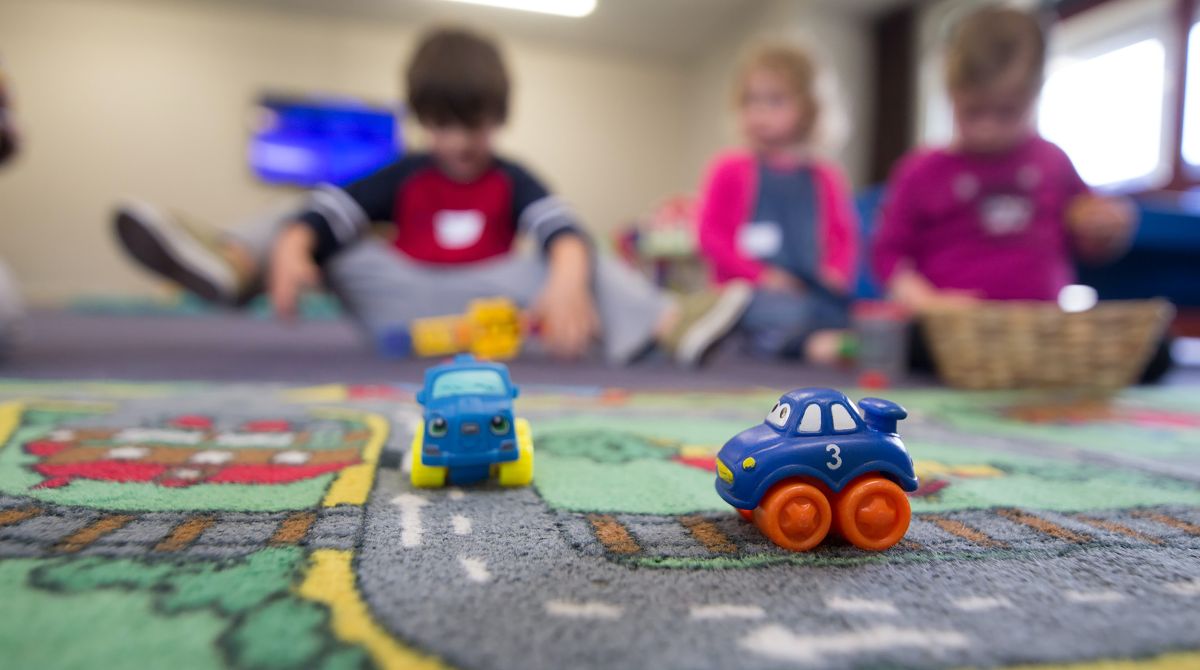Ground-breaking study involving Kingston University begins work to improve mental health and wellbeing support for children and young people in social care
Posted Monday 17 October 2022
 The study involving Kingston University will look at how mental health and wellbeing support for children who receive social care can be improved.
The study involving Kingston University will look at how mental health and wellbeing support for children who receive social care can be improved.
A significant new research project shedding light on the effectiveness of the mental health and wellbeing support and treatment received by children and young people who have social worker involvement has been launched by Kingston University and several key partner organisations.
The initial four-year study, entitled Child and Adolescent Mental Health Services (CAHMS) Referrals and Outcomes for Adolescents and Children with Social Workers, is a collaboration between Kingston University, the University of Cambridge, King's College London, the National Children's Bureau, the British Association of Social Workers and the Care Leavers Association. It will examine data from more than 70,000 young people with experience of the care sector across two NHS trusts in South London, and Cambridgeshire and Peterborough.
At the heart of the project, which has been funded by the National Institute for Health and Care Research (NIHR) and What Works for Children's Social Care, will be qualitative contributions by young people and parents with direct experience of mental health and wellbeing interventions within the social care system.
It is hoped the research findings could have a significant impact on how social care and mental health services are shaped and delivered to children and young people over the next two decades.
It follows the acknowledgement from the Independent Children's Social Care Review that mental health is a key issue facing young people who are in or leaving care.
Specifically, the project aims to find out what factors influenced whether a young person's referral to CAMHS is accepted or rejected, which treatments prove helpful for young people, the cost effectiveness of these treatments, how young people with social care involvement are depicted within CAMHS case notes, and what the experiences of young people with social care involvement of their treatment by CAMHS are.
The first outputs from the study are anticipated in 2023 and will include an analysis of the different forms of adversity experienced by young people with and without social care involvement and how this relates to their mental health needs and an analysis of inequalities accessing CAMHS for young people with safeguarding needs. It will also feature a qualitative analysis of case notes examining how mental health services make sense of young people's safeguarding needs and histories of adversity.
The objectives and findings of the research will be shared with policymakers and provide crucial evidence on what works and what is less effective when it comes to CAMHS interventions with children and young people with social work involvement.
The study team, which includes Rick Hood, Professor of Social Work at Kingston University, will also be supporting practitioners to get involved with the project, in conjunction with the British Association of Social Workers.
Highlighting the vital importance of mental health services for those in care, Professor Hood said, "Access to effective mental health provision is crucial for improving outcomes for vulnerable children and requires robust evidence to underpin the partnership between children's social care and CAMHS. This study will go a long way to providing that evidence and encouraging policies to strengthen services in this vital area."
Chief Executive of the National Children's Bureau, Anna Feuchtwang, said the study will give policymakers the evidence needed to improve support for those accessing care services. "This programme will provide us with the crucial evidence about how mental health teams and social workers collaborating can provide better support for children and young people in the care system, evidence that could change policies and strengthen the system that children in care rely on."
- Find out more about research at Kingston University.
Contact us
General enquiries:
Journalists only:
- Communications team
Tel: +44 (0)20 8417 3034
Email us



